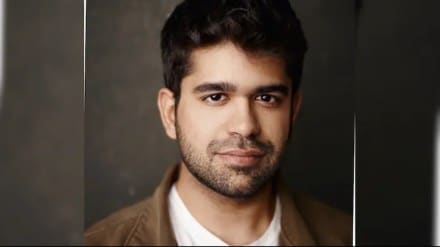While unsolicited buyout bids are not rare in corporate M&A, San Francisco-based Perplexity AI’s offer to buy Google’s Chrome browser is as rare as it is audacious. The $18-billion startup, led by Aravind Srinivas, has launched a surprise $34.5 billion offer for the tech giant’s web browser, hoping to capitalise on the looming uncertainty of its antitrust ruling.
For Srinivas, making a play for a deal twice the size of his startup wasn’t something he had planned. His journey in the tech world started far from Silicon Valley, in the city of Chennai, where his parents still live. “Whenever I come to India, I always go to Chennai first, before travelling to other cities,” Srinivas had said in a March podcast with Zerodha’s Nikhil Kamath.
Just another student in Chennai
Growing up, he was “just like any other student in Chennai”, Srinivas admits, highlighting a culture where studying hard was the norm. “I got an intuitive sense of numbers early on, and I was pretty good at maths.”
He sharpened his grasp of numbers by analysing cricket statistics, which later developed into strong mathematical skills. Towards the end of his 11th standard, he picked up programming, which aligned with the expectations of his parents. “Every time we would pass IIT Madras, my mom would point out the campus and say, ‘This is where you are going to study’,” he recalled on the podcast.
Although his JEE results fell short of his expectation, Srinivas still secured a seat at IIT to study electrical engineering. There, he dabbled in competitive programming, but found that he wasn’t really top tier. For instance, he recalls not being able to qualify for the world finals of the ICPC (International Collegiate Programming Contest). Nevertheless, this period was setting up the foundation for his entrepreneurial journey.
Bangalore startups
Soon, one of his IIT peers introduced him to Kaggle, where he participated in a contest involving data prediction. This sparked his interest in machine learning, and he mastered tools like scikit-learn, an open-source machine learning library for Python. Eventually, he won the contest, cementing his interest in the field of machine learning.
Before going for higher studies, Srinivas interned at a Bangalore startup, where he built recommender systems. He completed the core task of his internship in three weeks, much ahead of the designated 2.5-months to do that, and delivered a solution that was used by clients later on. The rest of the internship, he says, was spent on self-teaching machine learning through various online resources, including Stanford lectures.
Back on campus, Srinivas took formal machine learning classes, started doing research, and ultimately earned a PhD placement at UC Berkeley. From there, he secured internships at both OpenAI and DeepMind, as well as at Google. He describes this period of his life as moving continuously into circles with better peer groups, which pushed him to constantly re-evaluate his own understanding of the field. “It felt comfortable being not the best person in the room, and that takes time. The IIT mindset is to be the smartest person in the room. After coming here, I learnt that it is okay to not be the smartest person in the room,” Srinivas says.
In San Francisco, he camped out at a cafe from dawn to dusk, working round the clock to publish a paper that eventually connected him to OpenAI co-founder John Schulman. At OpenAI, Srinivas learned one of his most valuable lessons: Simple ideas often outperform the complicated ones. He recalls having some of his ideas rejected by the senior leadership at the company due to their complicated nature.
After a year at OpenAI, Srinivas launched Perplexity AI in August 2022 with co-founders Denis Yarats, Johnny Ho, and Andy Konwinski. The aim was to build an AI-based search engine that could rival the largest browsers in the world. Unlike traditional browsers, Perplexity uses its AI models to respond to a search query in a conversational language.
With Perplexity now taking aim at Google’s Chrome in one of the boldest bids in recent times, Srinivas can depend on that mix of ambition and calculated risk taking that has shaped his career.
